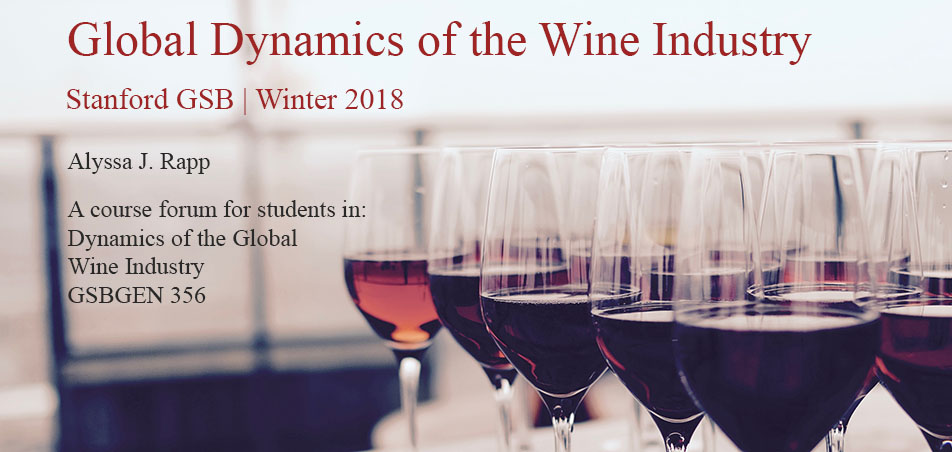I decided to take Global Dynamics of the Wine Industry in order to gain experience that complements my background in food, allows me to gain knowledge and expertise on working in a regulated industry and edifies my personal knowledge on wine. I also love beverages of all kinds, specifically coffee, tea, nut milks, kombucha, sparkling water and wine. I really enjoy the ritual of drinking beverages throughout the day and how drinking a beverage can set the tone for your day (a latte in the morning, an afternoon tea, a La Croix during class, kombucha after a workout, wine with dinner, etc).
As a professional in the food space I've been consistently interested in understanding the similarities and dissimilarities between the supply chain for a specialty food importer (my last company) versus a wine brand. This stems from an interest and passion for agricultural products and functional foods. Though wine, grapes and raisins are sold and marketed very differently, I am compelled to understand the differences that create distinctly different end products from the same seeds.
From a personal standpoint I have frequently dreamt of playing the role of sommelier to friends and family. I want to be able to pick a nice wine off a list to drink alongside a beautiful dinner and to be the friend that always brings a great bottle of wine to a party.
Lastly, and perhaps the reason why the class is most appealing to me, I would like to gain a better sense of how to navigate working in an industry that has a lot of regulations. Together, with another MBA 1, I am working on a beverage concept in the cannabis business space. Long term, I believe that the sale of cannabis products will closely resemble alcohol with regard to regulation. As result, I think there is a lot to learn from wine, particularly how it is distributed and marketed that could lend a significant amount of insight into building my business.
Super excited to expand my wine expertise with great people over this quarter!
With Love, Jess
